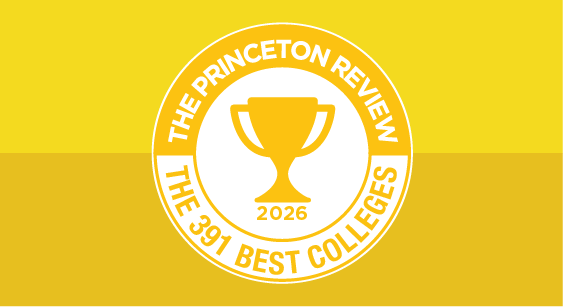Pre-Seminary
Overview
Contrary to what this may sound like, you’re not making any vows of poverty or chastity. You won’t get to hear confessions, and the closest you’ll come to wearing a long white robe in front of a crowd is if you get locked out of your dorm room on your way to the shower.
While you may not quite be ready for the pulpit, a major in Pre-seminary affords you the opportunity to engage in all of the intense theological and moral debates of your dreams, and better yet, by the time you graduate, you will have received such a thorough education in philosophical reasoning and Biblical thought that you’ll be able to make a much stronger argument than “because you’re just wrong.” Pre-seminary majors are theological and philosophical heavyweights. They study everything from Aristotle to contemporary Christian thought.
If a religious vocation is your calling, consider this excellent preparation for a life of the cloth. But even if you’re not already planning your first sermon, a Pre-seminary major is an excellent way to bridge theology and philosophy, to learn how to think and write critically.
- $47,160 Tuition
- 1080 Avg SAT
- 1,296 Enrolled
- 1260 Avg SAT
- 2,003 Enrolled
- $37,006 Tuition
- 1,163 Enrolled
- $58,430 Tuition
- 1100 Avg SAT
- 2,694 Enrolled
- $27,740 Tuition
- 920 Avg SAT
- 887 Enrolled
View All Pre-Seminary Schools
SAMPLE CURRICULUM
Church Vocations Practicum
Contemporary Philosophical Issues
Introduction to Philosophy
Introduction to the Bible
Modern Christian Thought
New Testament Theology
Old Testament Theology
Religion in America
Sociology
The Christian Faith
World Religions
HIGH SCHOOl PREPARATION
GRADUATE PROGRAMS & CAREERS
Explore Colleges For You
Connect with our featured colleges to find schools that both match your interests and are looking for students like you.
Top Schools for Game Design
Ready to create the next great app? Launch your gaming career at one of these top 50 programs.
Best 391 Colleges
170,000 students rate everything from their professors to their campus social scene.
Get Started on Athletic Scholarships & Recruiting!
Join athletes who were discovered, recruited & often received scholarships after connecting with NCSA's 42,000 strong network of coaches.



